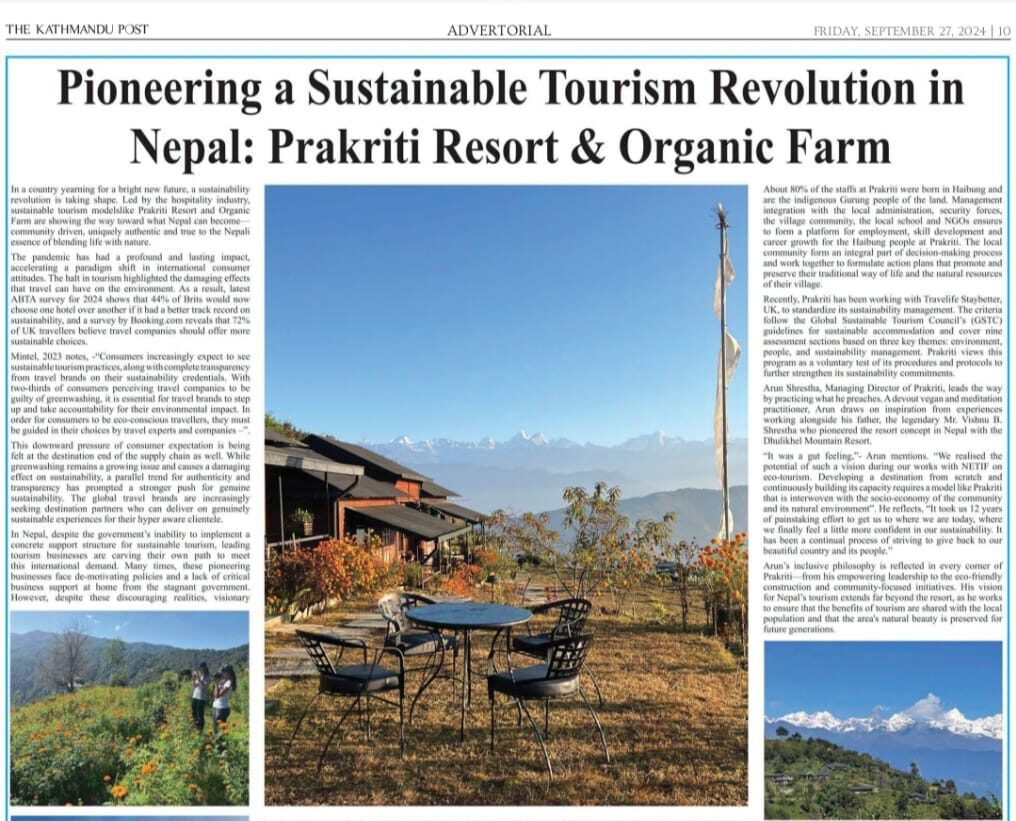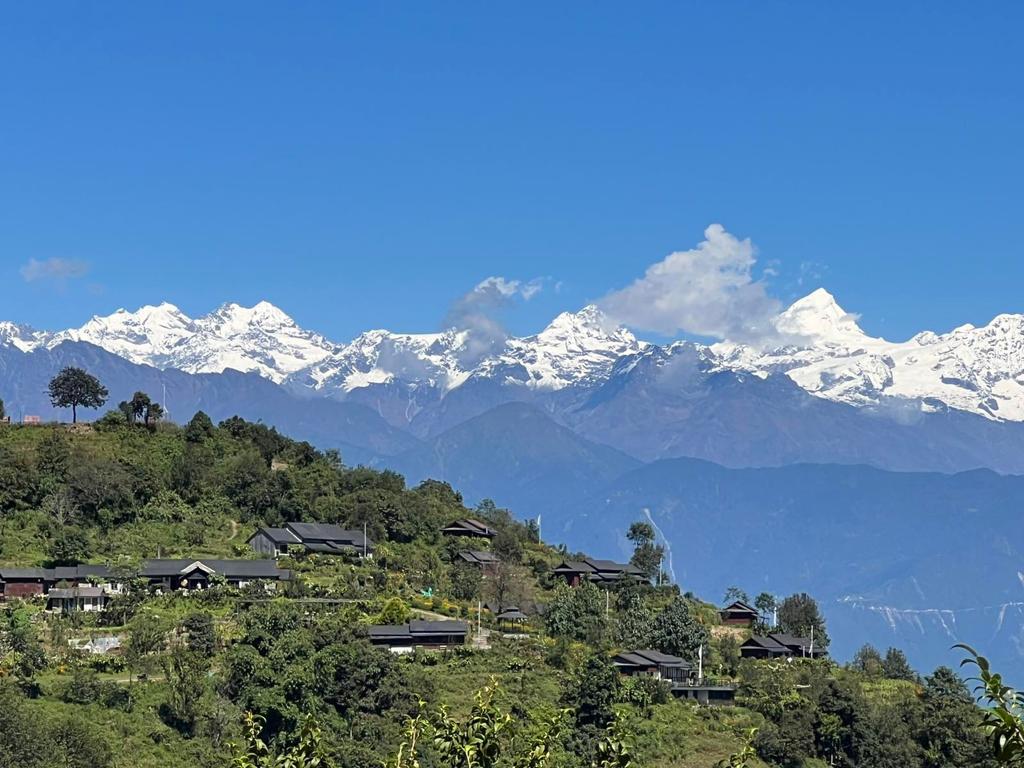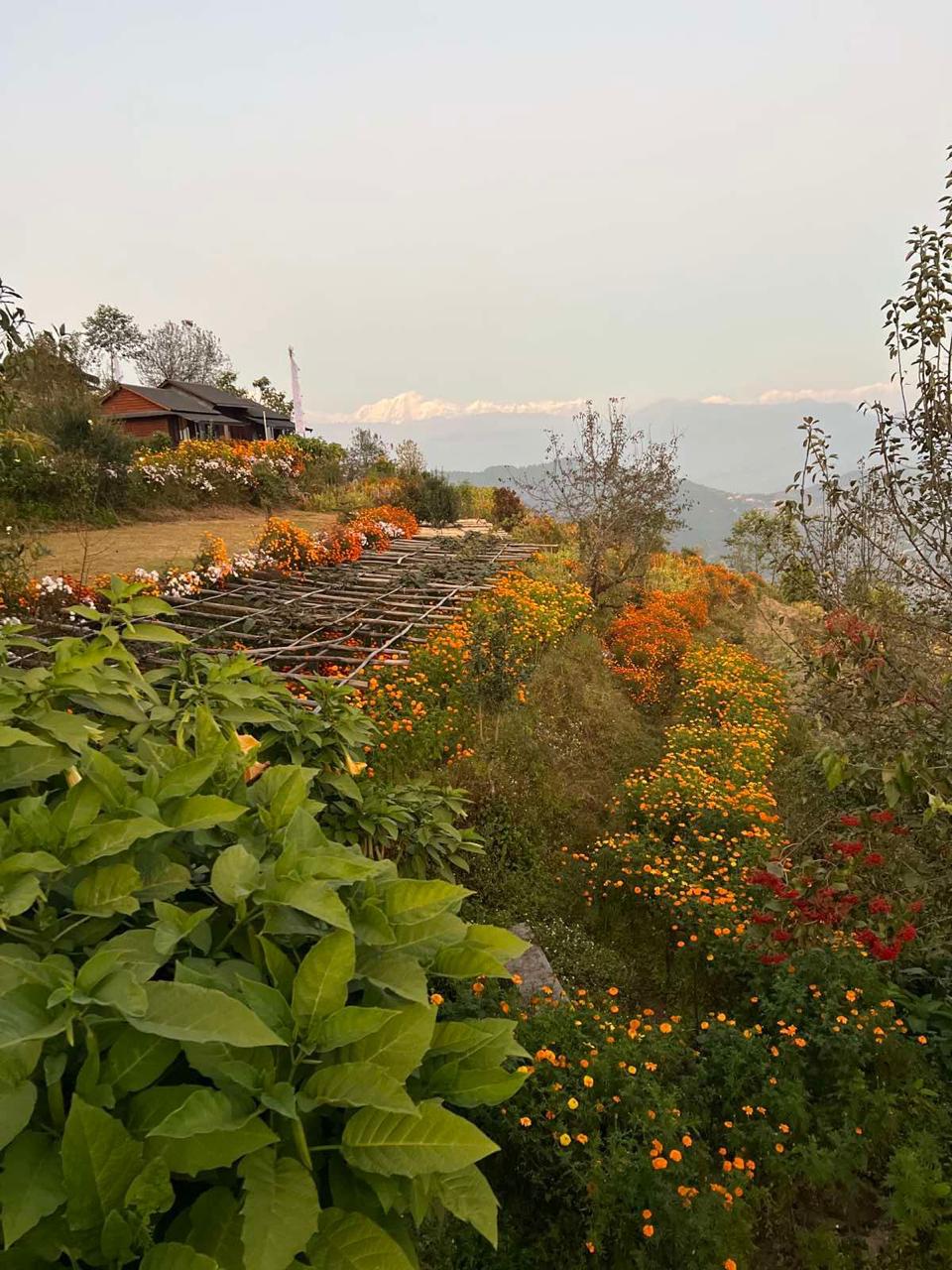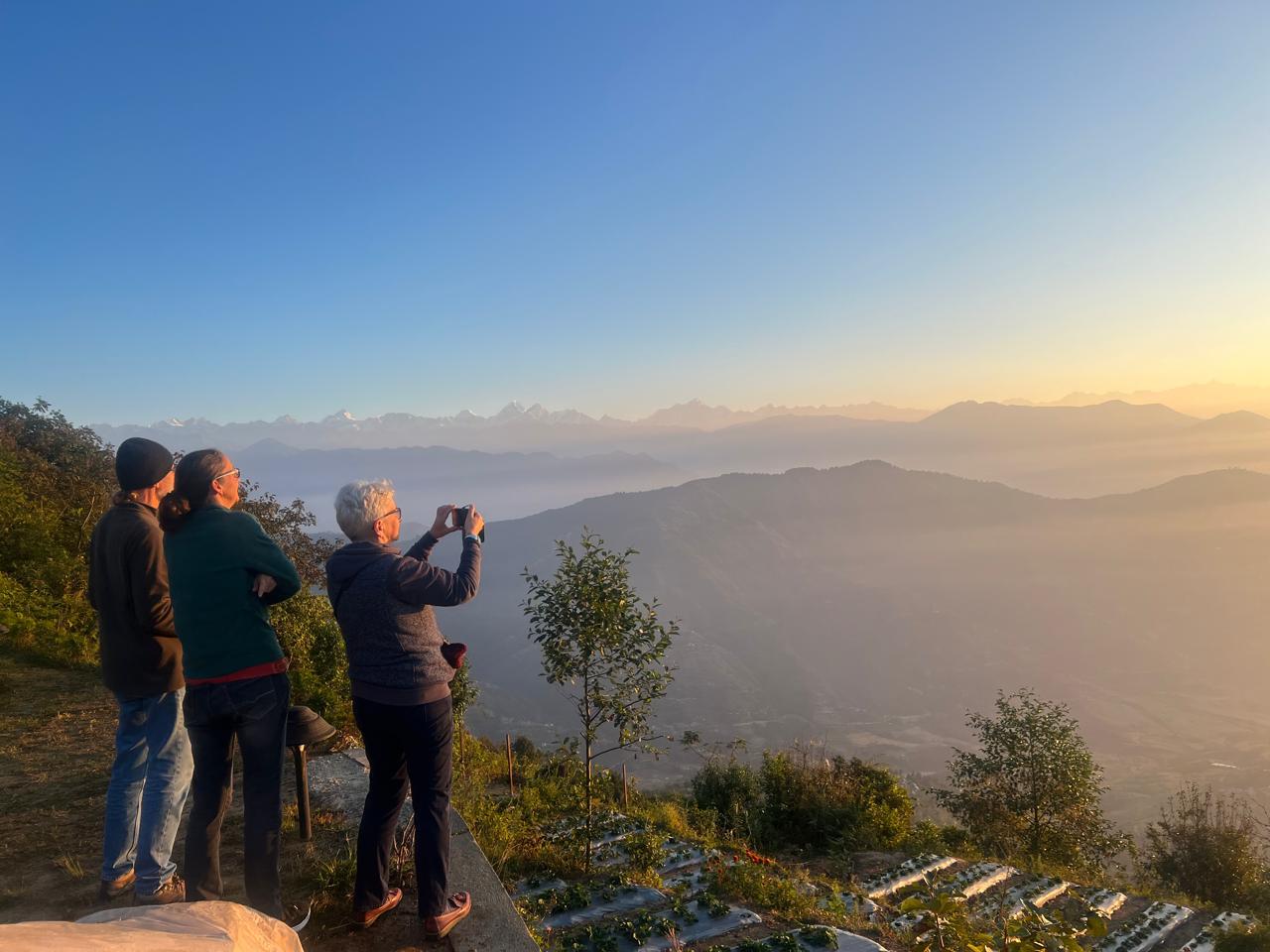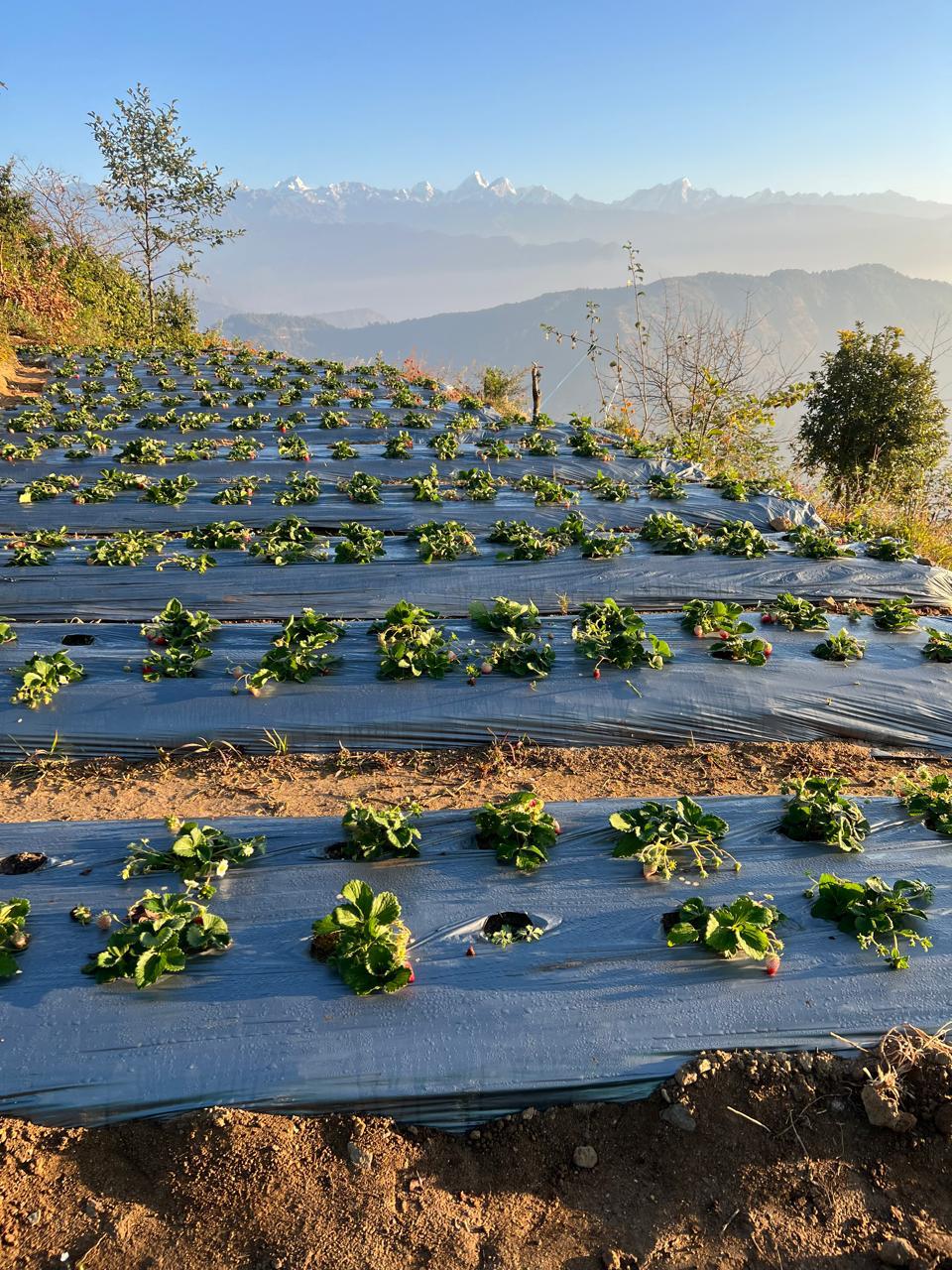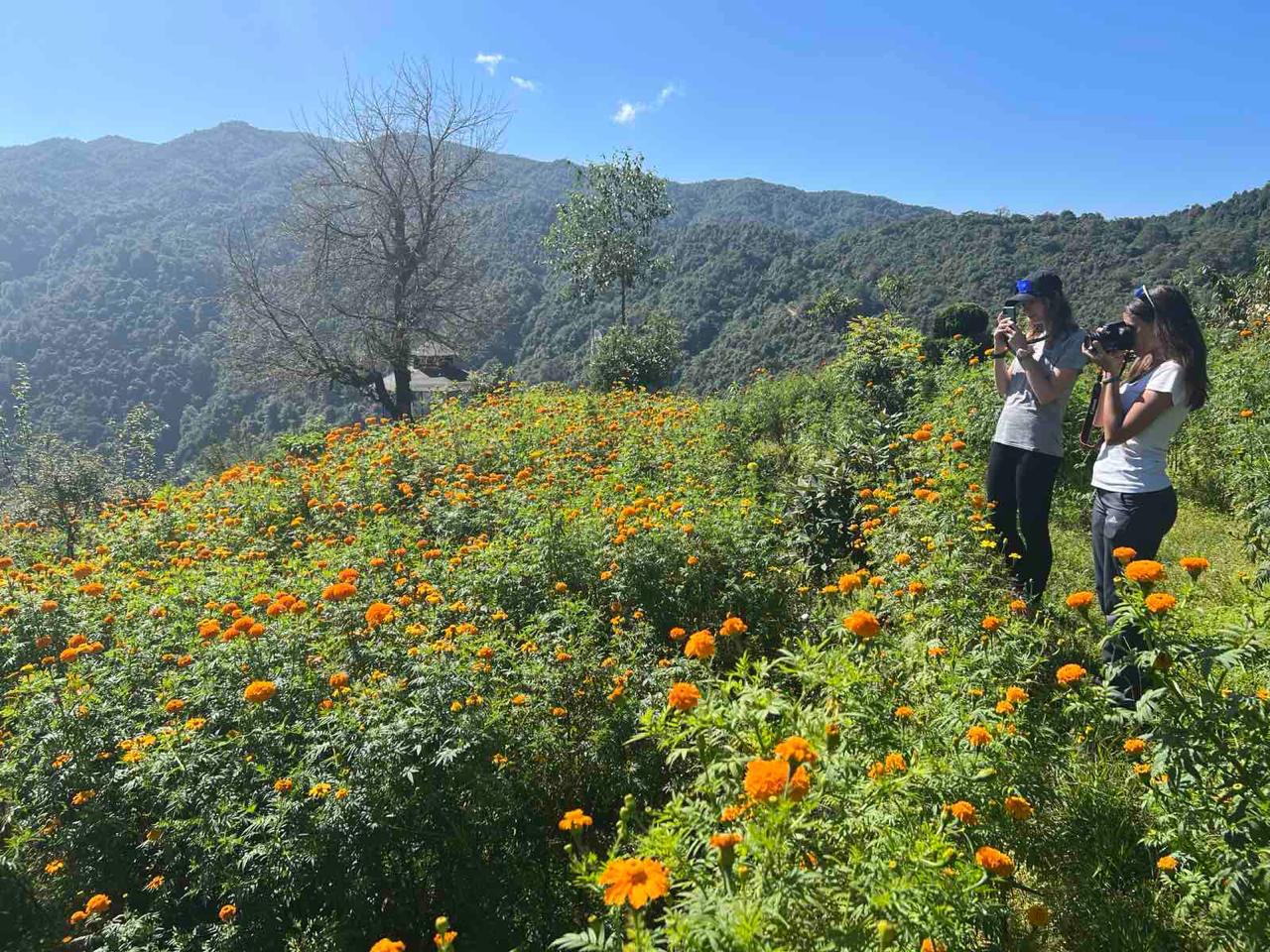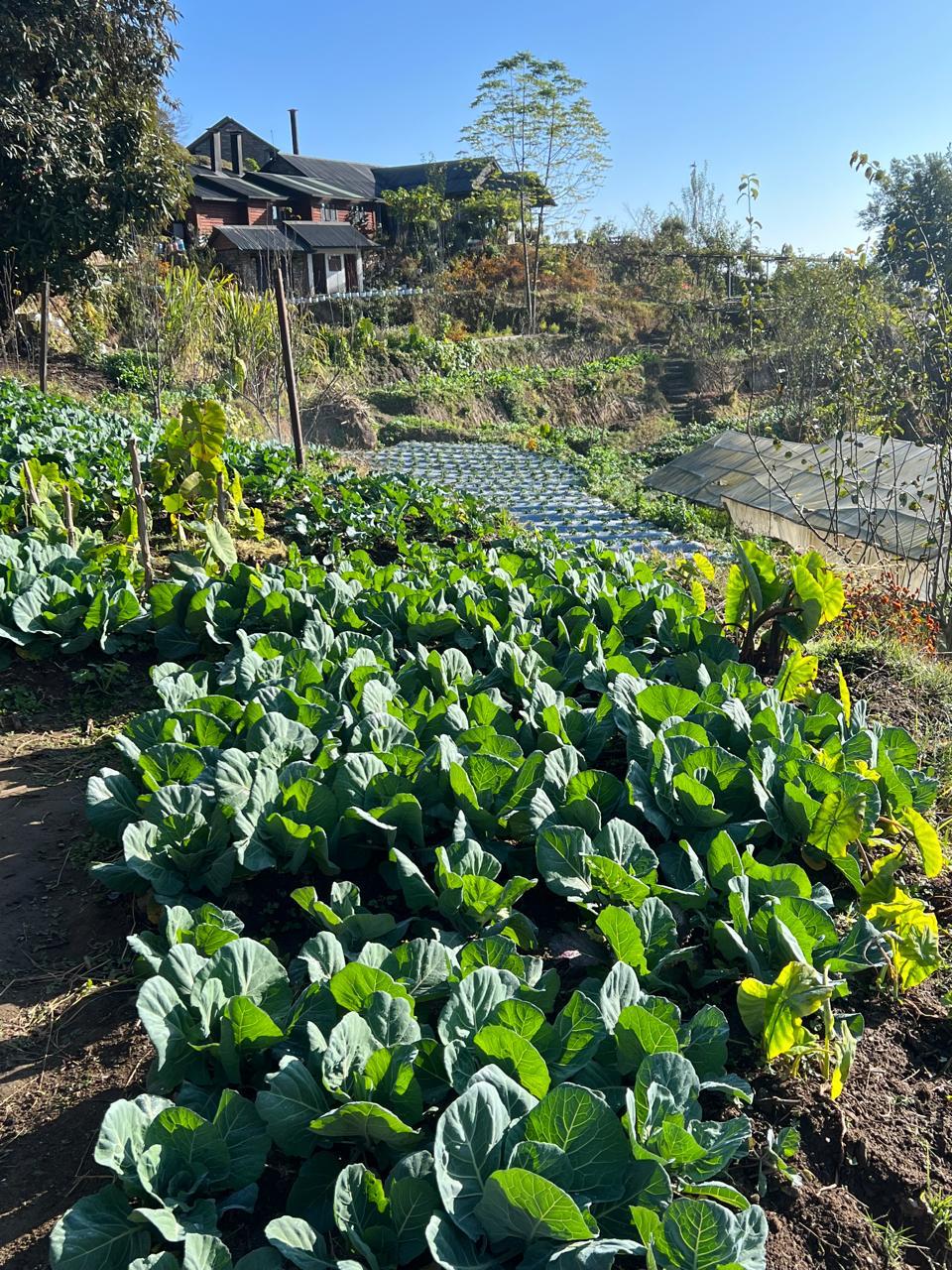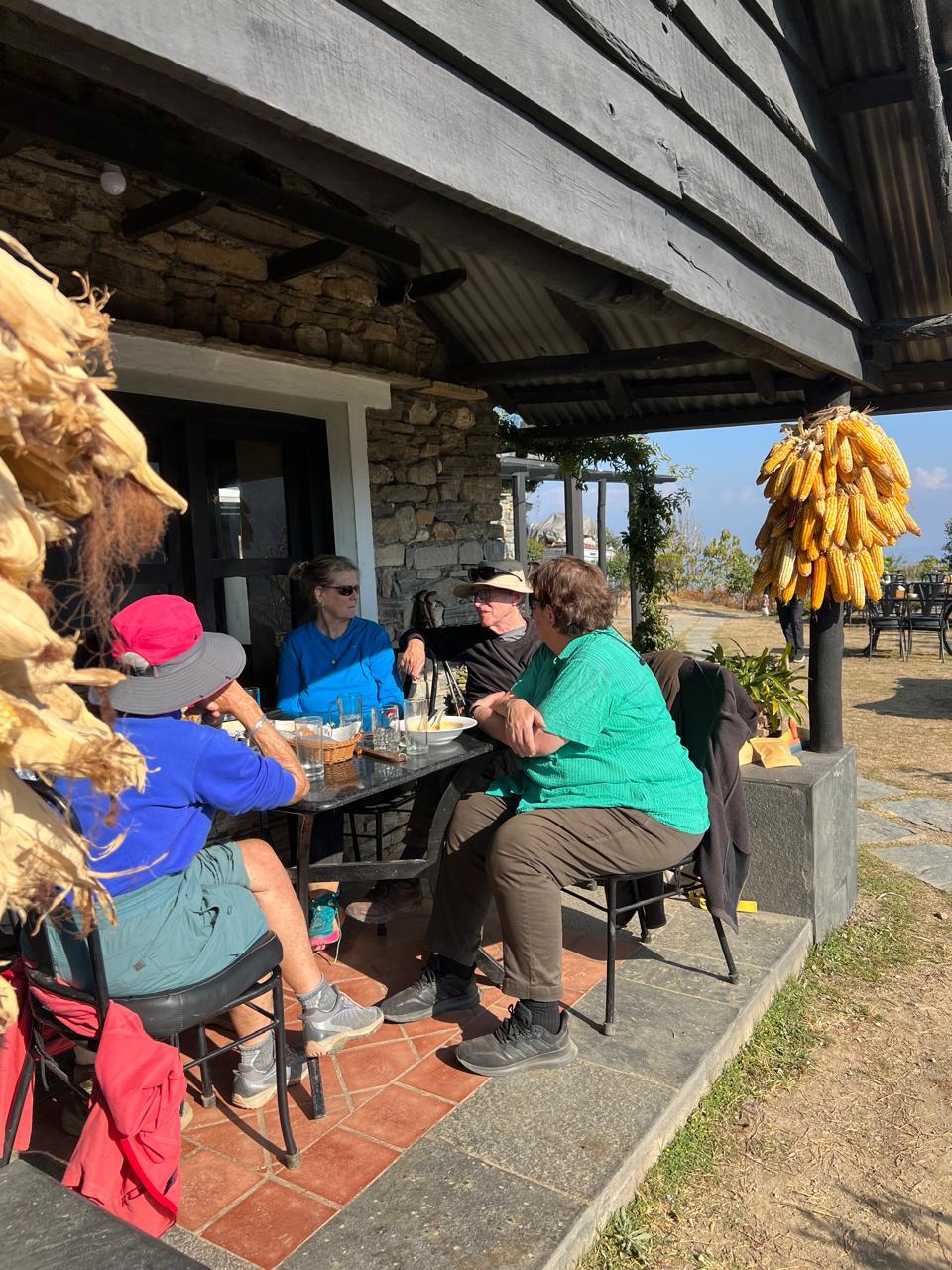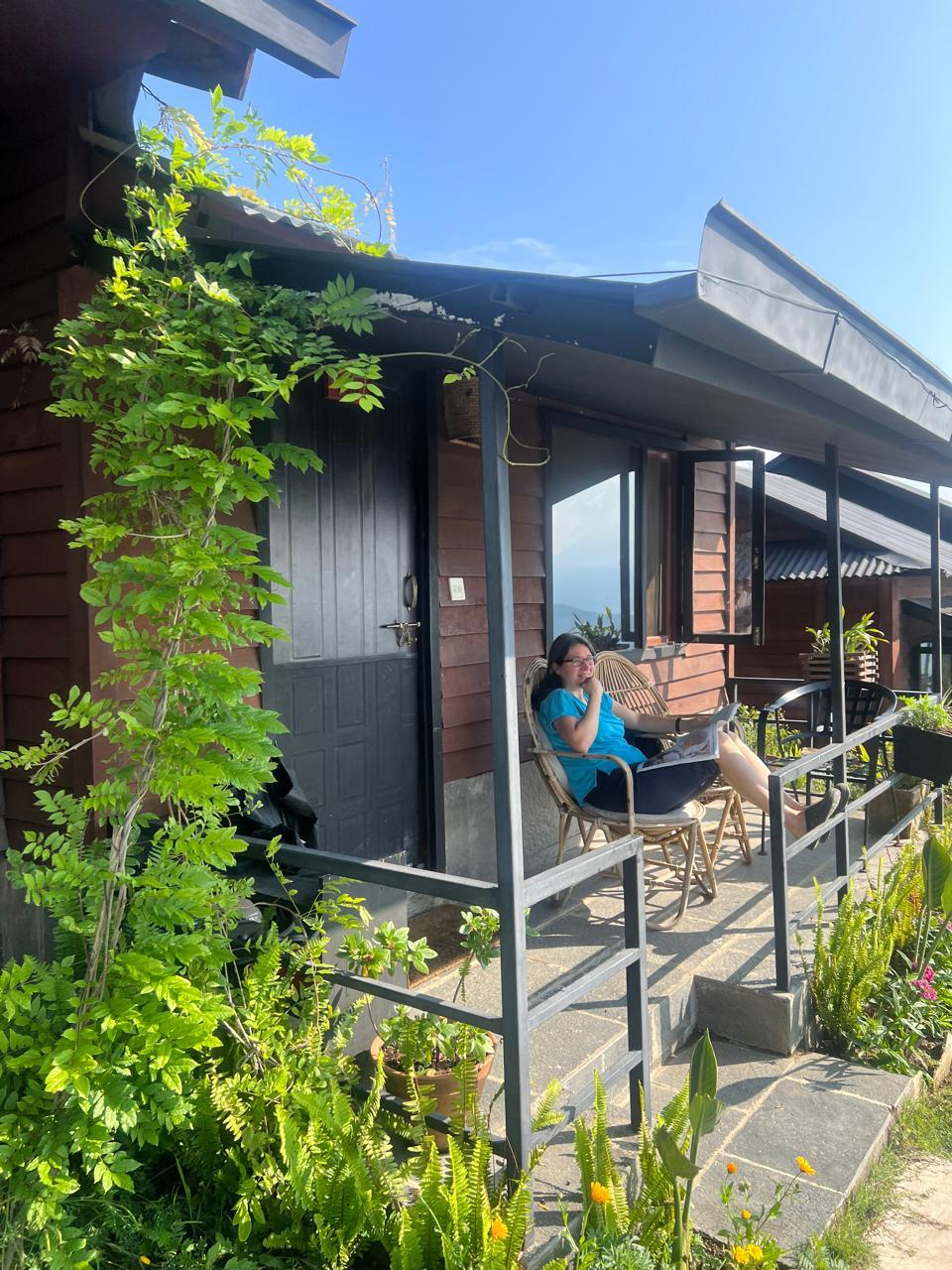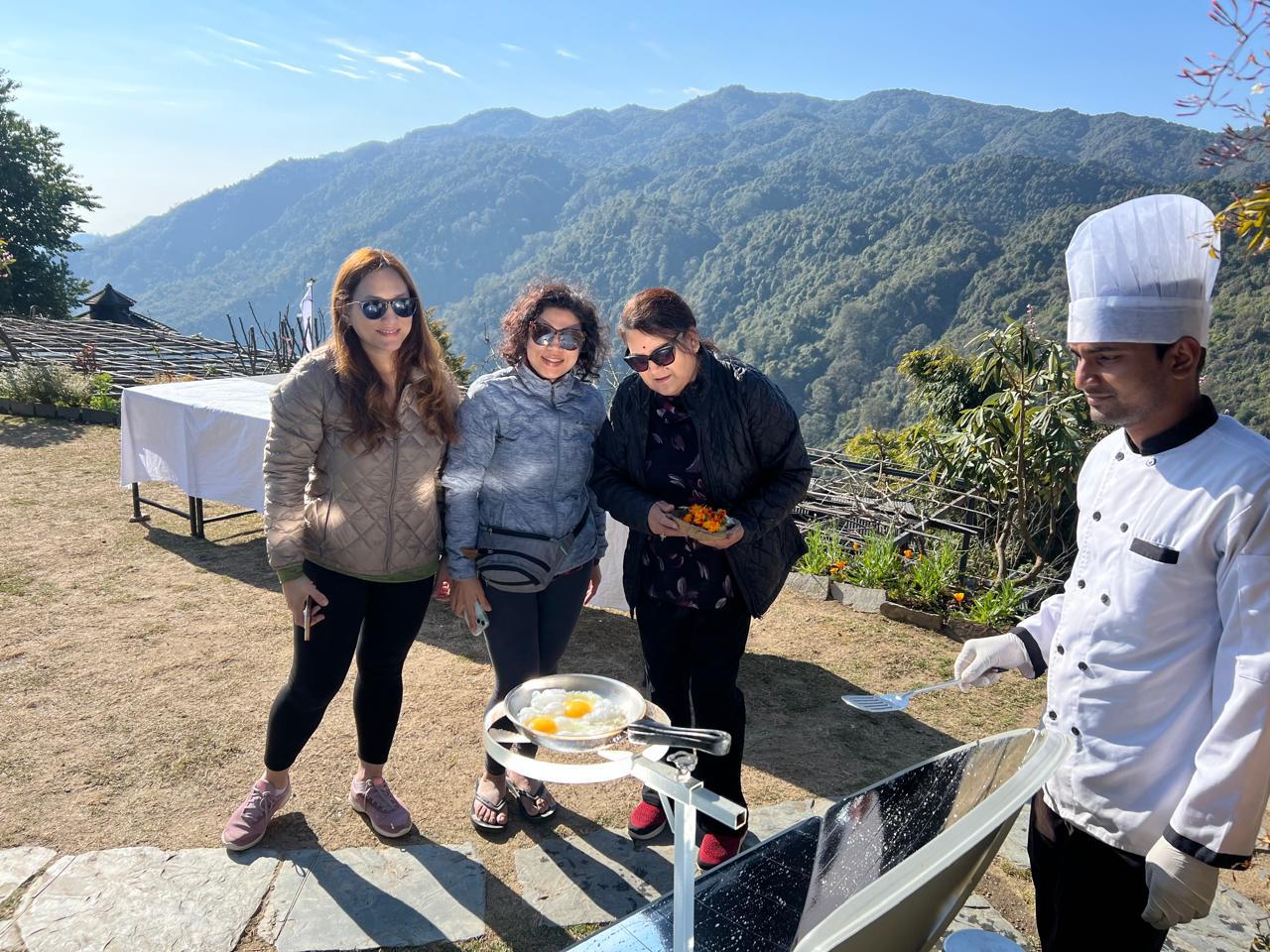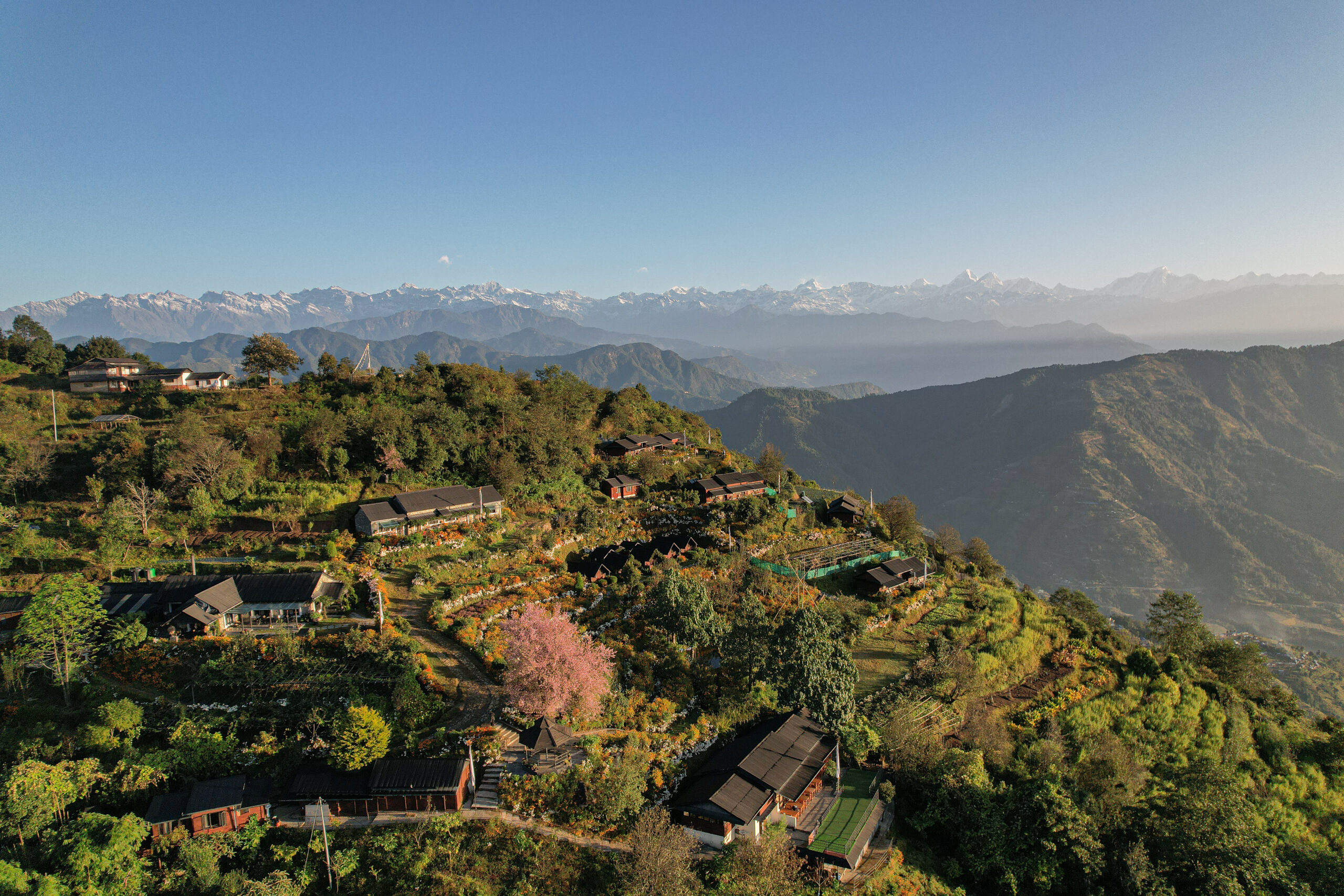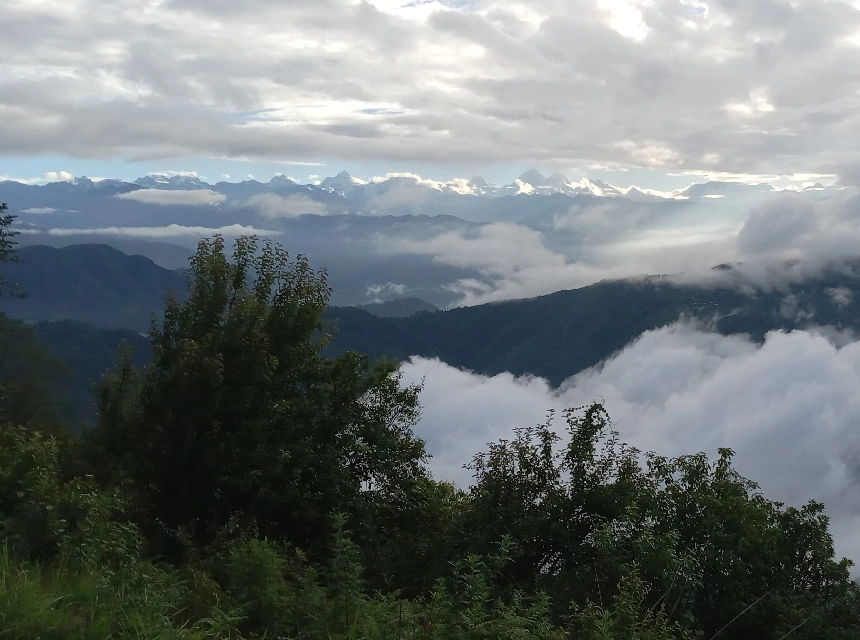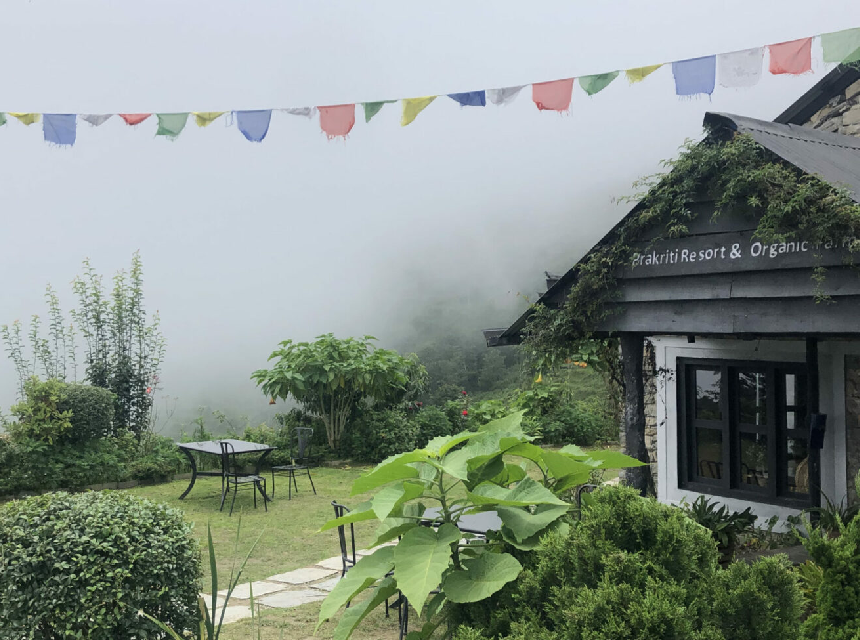You can also look at this post.
Since 2012, through continuous innovation and determination for excellence, Prakriti is shaping a new future of tourism in Nepal, with a vision to establish Haibung as a new sustainable tourism destination.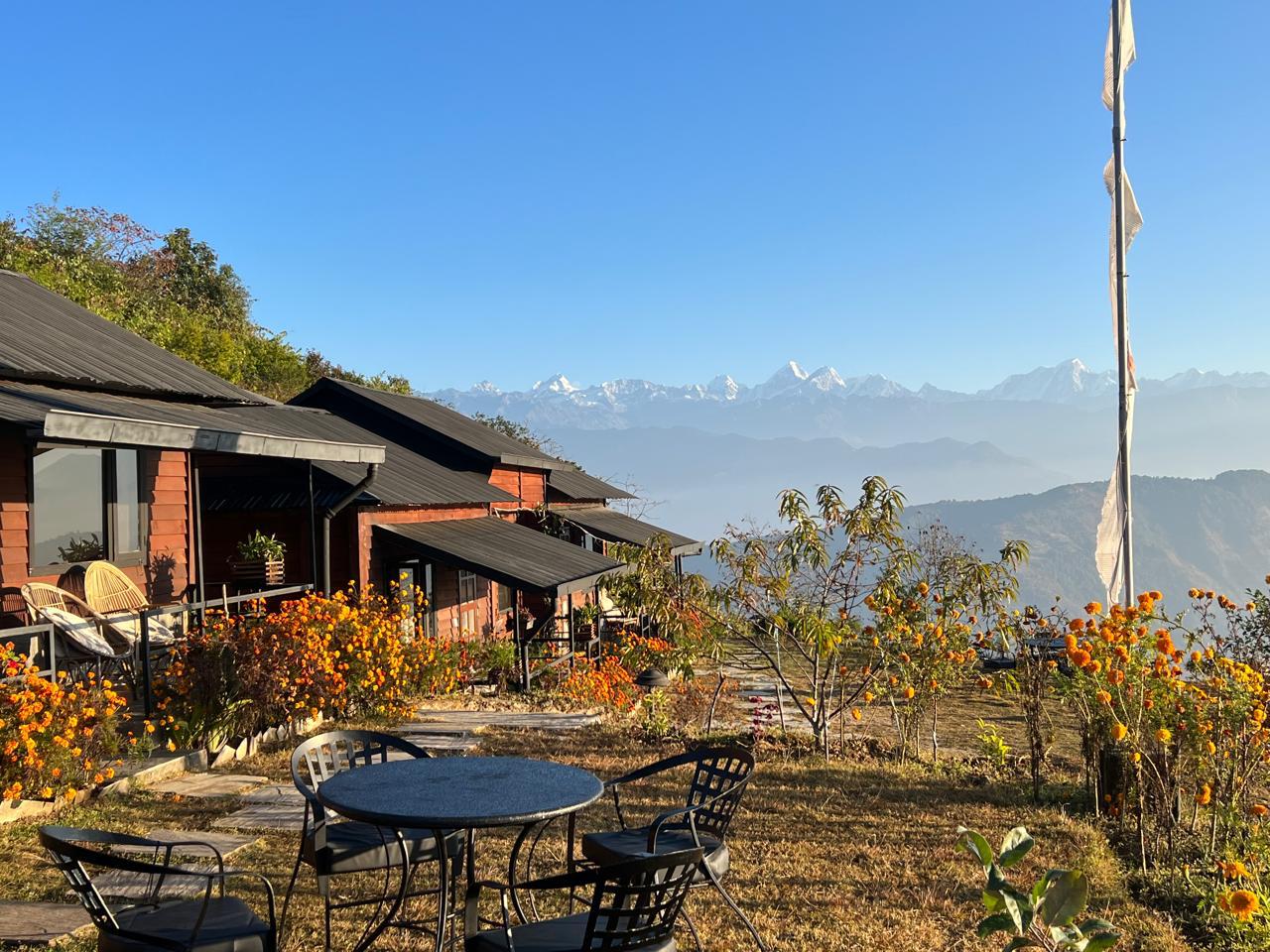
In a country yearning for a bright new future, a sustainability revolution is taking shape. Led by the hospitality industry, sustainable tourism models like Prakriti Resort and Organic Farm are showing the way toward what Nepal can become—community driven, uniquely authentic and true to the Nepali essence of blending life with nature.
The pandemic has had a profound and lasting impact, accelerating a paradigm shift in international consumer attitudes. The halt in tourism highlighted the damaging effects that travel can have on the environment. As a result, latest ABTA survey for 2024 shows that 44% of Brits would now choose one hotel over another if it had a better track record on sustainability, and a survey by Booking.com reveals that 72% of UK travellers believe travel companies should offer more sustainable choices.
Mintel, 2023 notes, – “Consumers increasingly expect to see sustainable tourism practices, along with complete transparency from travel brands on their sustainability credentials. With two-thirds of consumers perceiving travel companies to be guilty of greenwashing, it is essential for travel brands to step up and take accountability for their environmental impact. In order for consumers to be eco-conscious travellers, they must be guided in their choices by travel experts and companies –”.
This downward pressure of consumer expectation is being felt at the destination end of the supply chain as well. While greenwashing remains a growing issue and causes a damaging effect on sustainability, a parallel trend for authenticity and transparency has prompted a stronger push for genuine sustainability. The global travel brands are increasingly seeking destination partners who can deliver on genuinely sustainable experiences for their hyper aware clientele.
In Nepal, despite the government’s inability to implement a concrete support structure for sustainable tourism, leading tourism businesses are carving their own path to meet this international demand. Many times, these pioneering businesses face demotivating policies and a lack of critical business support at home from the stagnant government. However, despite these discouraging realities, visionary teams like Prakriti are independently navigating the path to sustainability through innovation and leadership. But what exactly is sustainability, and how does it apply to tourism?
In simple terms, sustainability is the most optimal way of developing and conducting a business—where businesses act as agents of positive change within their communities. Contrary to popular beliefs, sustainability always begins first with “I, me” and “us.” It can be as straightforward as making choices that benefit you both today and in the future. More often than not, what’s best for your long-term vision will align with what’s best for your society, the economy, and the environment. However, sustainability can also be complex, especially when it comes to measuring and adjusting how your individual actions or your business’s practices can impact global issues like the climate crisis.
UN Tourism, the prominent global body in tourism, defines sustainable tourism as “tourism that takes full account of its current and future economic, social, and environmental impacts, addressing the needs of visitors, the industry, the environment, and the host communities.” As tourism is a powerful tool that can either develop or destroy, it has intricate effects on a destination’s environment, economy, and socio-cultural aspects. With the world’s governments placing great emphasis on the Sustainable Development Goals (SDGs) 2030 agenda, and the increasingly evident climate crisis, sustainability, therefore, becomes even more pressing for such a highly complex and fragmented industry as tourism. For Prakriti’s team, this means more than just words.
Building on a legacy of success as pioneers in Nepal’s hospitality industry—starting with the establishment of Dhulikhel Mountain Resort in the early 1980s and transforming Dhulikhel as a renowned tourism destination—Prakriti’s team has long been at the forefront of Hospitality in Nepal. Their decades of experience in Nepalese hospitality, coupled with the practiced understanding of sustainable tourism, led to the formation of the Nepal Environment and Tourism Initiative Foundation (NETIF). This laid the groundwork towards a community-focused resort that is complemented by agro-tourism. This model has now culminated in the present manifestation as Prakriti Resort & Organic Farm.
Since 2012, through continuous innovation and determination for excellence, Prakriti is shaping a new future of tourism in Nepal, with a vision to establish Haibung as a new sustainable tourism destination that meets the needs of the new responsible tourists, fosters livelihoods for the local community, and supports the pristine environment of Shivapuri Nagarjun National Park.
Situated about 16 nautical miles northeast of Kathmandu Valley, at an altitude of 2,000 meters, Prakriti Resort and Organic Farm is nestled within the buffer zone of Shivapuri Nagarjun National Park in Haibung village. The Sanskrit word “Prakriti,” pronounced pra-kri-tee, translates to “nature”. While adventure lovers often opt for the scenic two-hour long jungle safari from Kathmandu to get to Prakriti, those who prefer a slower pace will find that the hike through the national park offers an unparalleled introduction to Kathmandu’s closest nature reserve. The 12-kilometer forest trail begins just outside the capital at Sundarijal Bus Park, ascending steps past the Shyal Mati waterfall, and following the pristine Nagmati River, one of the source tributaries of the Bagmati River.
Prakriti’s business model blends the charm of a village-themed resort integrated with an organic farm. Guests experience the distinct hospitality of an indigenous Nepalese mountain community—the Gurung people—enjoying panoramic views of the Melamchi landscape, framed by the Langtang mountain range. However, the resort’s key value proposition lies beyond profit, which, while part of its economic sustainability, is not entirely its central focus. Rather, the socio-economic upliftment of the Haibung community, along with the protection and promotion of Shivapuri National Park, by harnessing tourism as a driving force, is what drives Prakriti’s mission. The resort also strives to be a learning center, sharing knowledge about responsible tourism and organic farming, including hosting farm visits for young students curious about sustainability. This novel approach is embedded in its organizational structure, where representatives of the village community and the social enterprise NETIF are given a voice as shareholders of the business.
The resort achieves its mission through several key initiatives. First, the organic farm, functions independently, growing seasonal produce and employing local villagers—mainly women—who are trained in organic farming techniques. This is the critical advantage that weaves Prakriti with the 30 families of Haibung making its impact scalable throughout the community. Villagers are encouraged and supported to implement their skills on their own farms and supply high-demand organic items like eggs, milk, meat, oranges, and potatoes. These locally sourced produce is then incorporated into resort’s culinary experience reducing dependence on Kathmandu for 65% of its food supply. Creative marketing ideas are then experimented with an emphasis on minimizing food waste; for instance, excess strawberries are made into strawberry wine, and high value marketable products like chia seeds, quinoa and foxtail millet are sold in limited batches at farmers’ markets in Kathmandu.
Staying true to the environmental aspect of sustainability, Prakriti has developed a comprehensive protocol for waste management. Waste produced in the kitchen, the animal feed, and the vermicomposting facility are efficiently integrated into Prakriti’s waste management system, each bolstering its aim to reduce, reuse, and recycle. Plastics are meticulously discouraged from within the supply chain, and, even more impressively, guests are encouraged to collect any waste they find at the destination, earning them certificates for their environmental stewardship. The resort’s guest experience is themed around responsible tourism, educating visitors on day-to-day implementation of sustainable practices. Resort policies help reduce pollution through simple measures like turning off lights at designated times to minimize light pollution, alongside more sophisticated tactics such as using renewable energy sources for cooking and rainwater harvesting for farming. Calmer entertainment protocols reduce sound pollution in the sensitive environment of the nature reserve, while efficient greywater recycling supports sustainable farming.
About 80% of the staffs at Prakriti were born in Haibung and are the indigenous Gurung people of the land. Management integration with the local administration, security forces, the village community, the local school and NGOs ensures to form a platform for employment, skill development and career growth for the Haibung people at Prakriti. The local community form an integral part of decision-making process and work together to formulate action plans that promote and preserve their traditional way of life and the natural resources of their village.
Recently, Prakriti has been working with Travelife Staybetter, UK, to standardize its sustainability management. The criteria follow the Global Sustainable Tourism Council’s (GSTC) guidelines for sustainable accommodation and cover nine assessment sections based on three key themes: environment, people, and sustainability management. Prakriti views this program as a voluntary test of its procedures and protocols to further strengthen its sustainability commitments.
Arun Shrestha, Managing Director of Prakriti, leads the way by practicing what he preaches. A devout vegan and meditation practitioner, Arun draws on inspiration from experiences working alongside his father, the legendary Mr. Vishnu B. Shrestha who pioneered the resort concept in Nepal with the Dhulikhel Mountain Resort.
“It was a gut feeling,”- Arun mentions. “We realised the potential of such a vision during our works with NETIF on eco-tourism. Developing a destination from scratch and continuously building its capacity requires a model like Prakriti that is interwoven with the socio-economy of the community and its natural environment”. He reflects, “It took us 12 years of painstaking effort to get us to where we are today, where we finally feel a little more confident in our sustainability. It has been a continual process of striving to give back to our beautiful country and its people.”
Arun’s inclusive philosophy is reflected in every corner of Prakriti—from his empowering leadership to the eco-friendly construction and community-focused initiatives. His vision for Nepal’s tourism extends far beyond the resort, as he works to ensure that the benefits of tourism are shared with the local population and that the area’s natural beauty is preserved for future generations.
As the global marketplace evolves alongside the challenges of the climate crisis and global peace, tourism is increasingly being looked upon as the single most powerful tool to uplift the society and push for a better future. Governments across the world are recognising the power of tourism and are integrating it to national and regional action plans for a rampant and holistic development.
While there is an emerging and discernible market trend towards sustainability, and ground-breaking initiatives are sprouting in Nepal that are adding value to the Nepal brand, a lack of communication channels and consolidated efforts among market participants leading these great efforts is also evident.
Sustainable tourism is, by nature, a cooperative endeavour and innovation requires that nurturing market environment where synergies can flourish. Nepal must come together to build a more connected and cohesive tourism ecosystem to amplify these pioneering contributions.
Khadka works as Sustainable Tourism Consultant for tourism businesses in Nepal and is the founder of Béyul, a destination development social enterprise that researches on community development utilizing tourism. He holds a Master’s degree in International Tourism Development from the University of Northampton, UK and has interests in social movement, sustainability and tourism.
